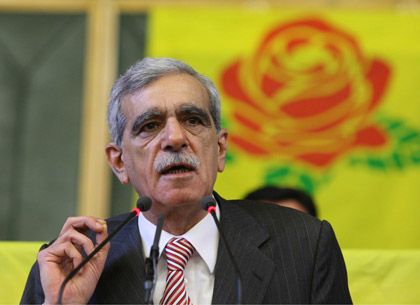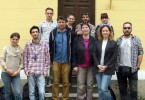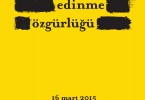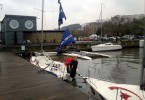Niyazi Dalyancı
State of affairs in Turkey, already rife with political and social tensions, took yet another precarious turn with the eleven members of the Constitutional Court voting unanimously to close down the Kurdish Democratic Society Party (DTP) on grounds that it has become a focal point of activities aimed at undermining the national integrity of the country.
According to the ruling Ahmet Turk, one of the two co-chairpersons of DTP and Aysel Tugluk, member of the parliament lost their seats in the nation’s legislative assembly bringing down the number of deputies the party had down to 19. The Constitutional Court ruling also stipulates that all property, including office furniture owned by DTP should be transferred to the national treasury.
Turk announced a day after the ruling that his party will withdraw from the parliament and “continue their struggle for democracy outside.”
Describing the ruling as “political not legal” Turk said his party never proposed “violence” as a method for solving the Kurdish question and accused the ruling Justice and Development Party (AKP) for falling silent when the Constitutional Court took up the case for closing down DTP.
“They were very critical of the Constitutional Court when their closure case was being processed. They are democrats for themselves only,” said Turk. He was referring to the case last year when the Constitutional Court took up a similar case to close down AKP on grounds that the party was undermining the secular principles of the Turkish Republic. Although the court ruling in July 2008 said AKP has become the center of anti-secular activities, it stopped short of closing the ruling party and handed down a hefty fine.
Although the detailed ruling of the Constitutional Court has not been made public yet, Chief Justice Hasim Kilic referred to DTP’s “ties with the terror organization,” were also taken into consideration while the court made the ruling.
21 deputies were elected to the Grand National Assembly during the 2007 elections as independents from mostly Turkey’s southeastern provinces where majority of the nation’s Kurdish citizens live. They did not participate in the elections on a party ticket to bypass the 20 percent national threshold for all the parties required to send representatives to the legislative assembly. After the elections they were able to form a party group, a status granted to political parties that have more than 20 seats. According to the parliamentary regulations, as a party group DTP was able to have more access to the rostrum.
Since DTP was elected to the parliament, its deputies were under pressure both from the government of Prime Minister Tayyip Erdogan and opposition parties, Republican Peoples Party (CHP) and rightwing Nationalist Action Party (MHP) to admit that PKK (Workers Party of Kurdistan) that has been waging an armed struggle against government forces for almost thirty years is a “terrorist organization.”
Erdogan had refused to talk to DTP leaders unless they declared PKK a terrorist group. However, earlier this year, after his announcement of “Kurdish opening” Erdogan met with Turk and his associates, although DTP resisted pressures to describe PKK as a terrorist organization; probably because of the fact that PKK admittedly enjoys a lot of support among the party’s grassroots.
It seems that the Constitutional Court ruling has driven the last nail into the lid of “Kurdish opening’s” coffin along with the PKK’s ambush of a Turkish military patrol in Tokat, central Anatolia, during which seven soldiers were killed in the first week of December.
The end of Kurdish opening?
“When it was first launched, I was very optimistic and I wrote several articles about my optimism. I thought that the groundwork was done for such an opening. I thought that there were behind the scene contacts with DTP to reach an understanding that the party should stop children demonstrating and throwing stones on the streets of southeastern provinces and in exchange the government would promise them to take necessary legislative steps to prevent the Constitutional Court closing down DTP. Interior Minister was holding consultative talks with opinion makers and asking them what could be done. I thought the government had a plan and sounding out the opinion makers. Now, it turns out that they did not have any plan and they were really asking what to do?” says Dr. Haluk Sahin, a professor at Istanbul Bilgi University and a commentator at daily Radikal.
Emine Ayna, the co-chairwoman of DTP declared, “The opening has finished.”
Ocalan’s new cell
One of the issues raised by both PKK and DTP before the ruling was the conditions of Abdullah Ocalan, the leader of PKK, serving a life sentence on a solitary island penitentiary in the Sea of Marmara.
Complaints were placed at European platforms that for ten years Ocalan has been kept in solitary confinement in violation of basic human rights. To put an end to these complaints the government built a new building on the island of Imrali and decided to transfer four more inmates, three of whom are PKK convicts and allow them to keep company with Ocalan from time to time. However, when Ocalan was transferred to his new cell, he sent out messages saying, “I am suffocated here, I cannot breathe, I don’t know how much longer I can survive in this cell.”
The message immediately led to street demonstrations in Diyarbakir, Hakkari and other cities in the southeast. DTP spokesmen claimed that the authorities were “following a policy of liquidation” against Ocalan.
Justice Ministry distributed the photographs of Ocalan’s new cell and announced that it was only 17 square centimeters smaller than his previous one. They also removed the iron gauze covering the ventilation shaft. But these measures fell short of appeasing the protesters.
What is to be expected?
DTP leader Turk’s announcement that the remaining 19 deputies of his defunct party will not be participating in the parliamentary functions from now on, falls short of resigning from the National Assembly. But, even if they resign, a parliamentary majority vote is required for their resignations to become valid according to the procedures.
Like most of the political parties shut down by the Constitutional Court previously, DTP has also prepared a fall back position. There is already a Peace and Democracy Party (BDP) set up by DTP sympathizers in Diyarbakir which can replace DTP. There is no legal obstacle for DTP members who are not among the 37 people banned from engaging in politics for five years by the court, to continue political activity within the ranks of BDP.
Among those 37, the court also included Leyla Zana whose arrest in 1994 with five other Kurdish deputies in the Grand National Assembly triggered reactions in Turkey and the world, although she was not an official member of DTP.
“Leyla Zana is not a member of the party. The court banned her from politics as a party member. This indicates how carefully the court has studied the evidence,” said Turk in his press conference he described as his “final one.”







